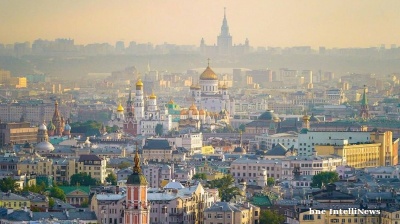The board of the Central Bank of Russia (CBR) is expected to cut the key interest rate for the third time in a row at its upcoming policy meeting on September 6. All but one analysts surveyed by Reuters and Bloomberg expect the CBR to cut the rate by 25 basis points (bp) to 7%.
"Given the ongoing disinflation, we see a 25bp cut, but also a somewhat more hawkish statement that may signal a next cut only in 1H20," Sberbank CIB commented on September 4.
In July, the CBR expectedly resolved to cut the key interest rate by 25bp to 7.25%, continuing its move towards moderately lose monetary policy.
The regulator attributed the rate cut to the continuous slowdown of inflation, although warning that inflationary expectations remain high, while seeing slow economic growth as curbing inflationary risks, and warning the government against spending hikes.
"In the statement following the July meeting, the CBR again guided for a key rate cut at an upcoming meeting, which, based on previous comments by Governor Elvira Nabiullina, we take to mean at one of the next three meetings before year-end. Taking into account the rather low short-term inflation risks, we believe it will act sooner rather than later and cut the rate by 25bp to 7.00% on Friday," Sberbank reminds.
The analysts at Sberbank draw attention to where the CBR sees the inflation-neutral key rate in 2020, suggesting that the neutral key rate is below 7.00% and arguing that the regulator might opt for a pause after reaching the threshold.
At the same time Vladimir Tikhomirov of BCS Global Markets on September 5 argued that "although inflation data provides room for more monetary easing, factors could undermine financial stability and lead to a rise in inflationary pressures in the medium-term," thus sticking to "non-consensus view that a cut [of key interest rate to 7%] is premature".
Tikhomirov argues that growth in global volatility and resulting outflows from risky assets, domestic reversal of public income trend, and government spending traditionally spiking towards the end of the year represent risk factors could compel the CBR to sit this one out, but not abandon monetary easing altogether.
The CBR managed to bring down inflation from double-digit readings to a post-Soviet low of 3%-5% in 2018. The inflation-minded regulator was generally inclined towards moderately loose monetary policy, but it had been thrown back by a worsening in sanctions and the external environment in April 2018.
Data

Military aid for Ukraine falls despite new Nato PURL initiative – Statista
The Kiel Institute for the World Economy found that military aid to Ukraine dropped sharply in July and August compared to previous months, despite the implementation of the Nato PURL initiative.

IMF cuts Russia’s 2025 growth forecast to 0.6%, leaves Ukraine's unchanged at 2%
The International Monetary Fund has lowered its forecast for Russia’s economic growth in 2025 to just 0.6%, marking the second-steepest downgrade among major economies, even as it raised its global outlook.

Russia's PMI indices plummet as economy cools
Russia’s private sector entered deeper contraction in September, as both services and manufacturing activity declined, according to the latest PMI data published by S&P Global.

Japan’s current account surplus dips as overseas earnings weaken
The surplus nevertheless remained in positive territory for the seventh consecutive month and was the second-highest on record for August.



